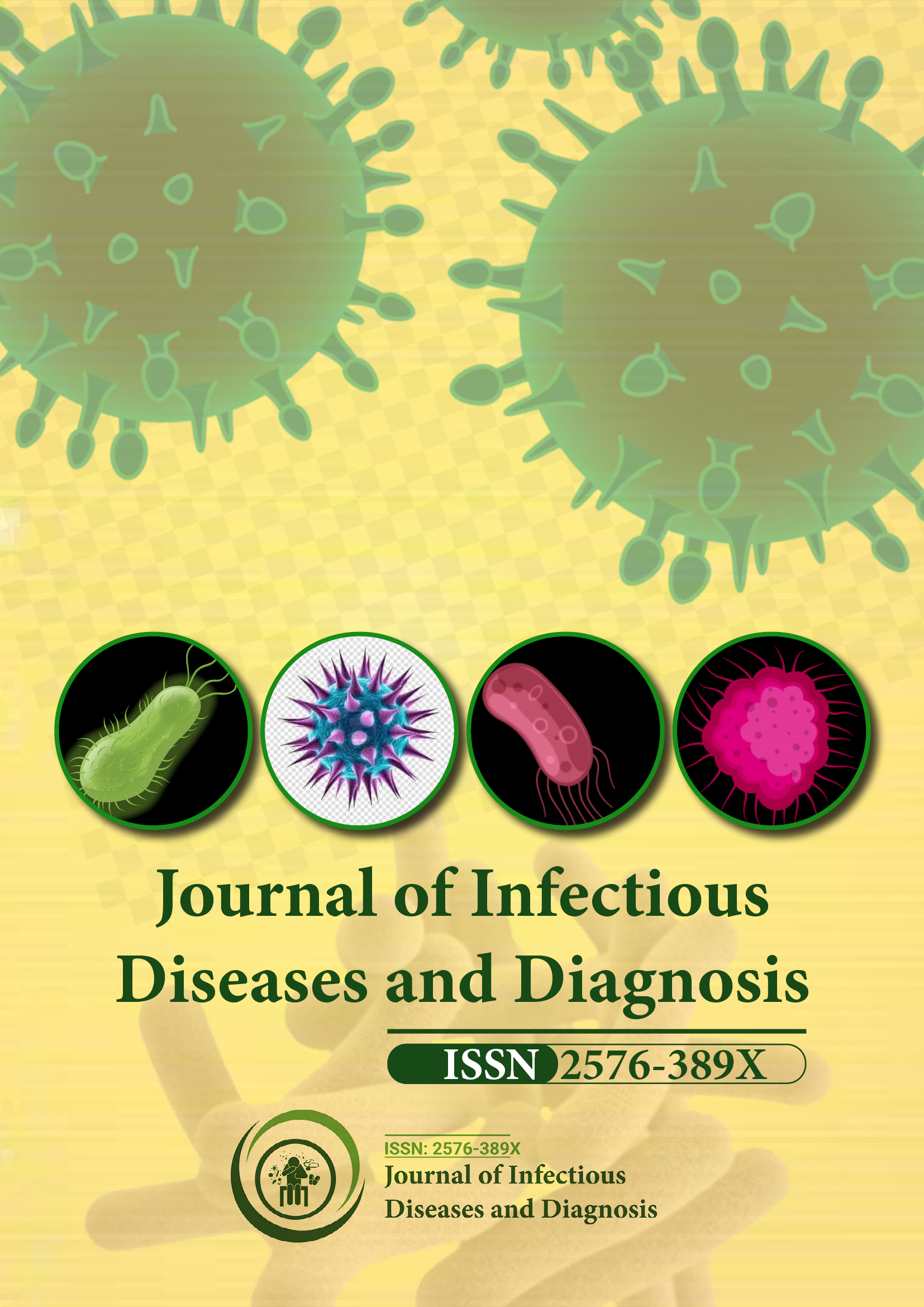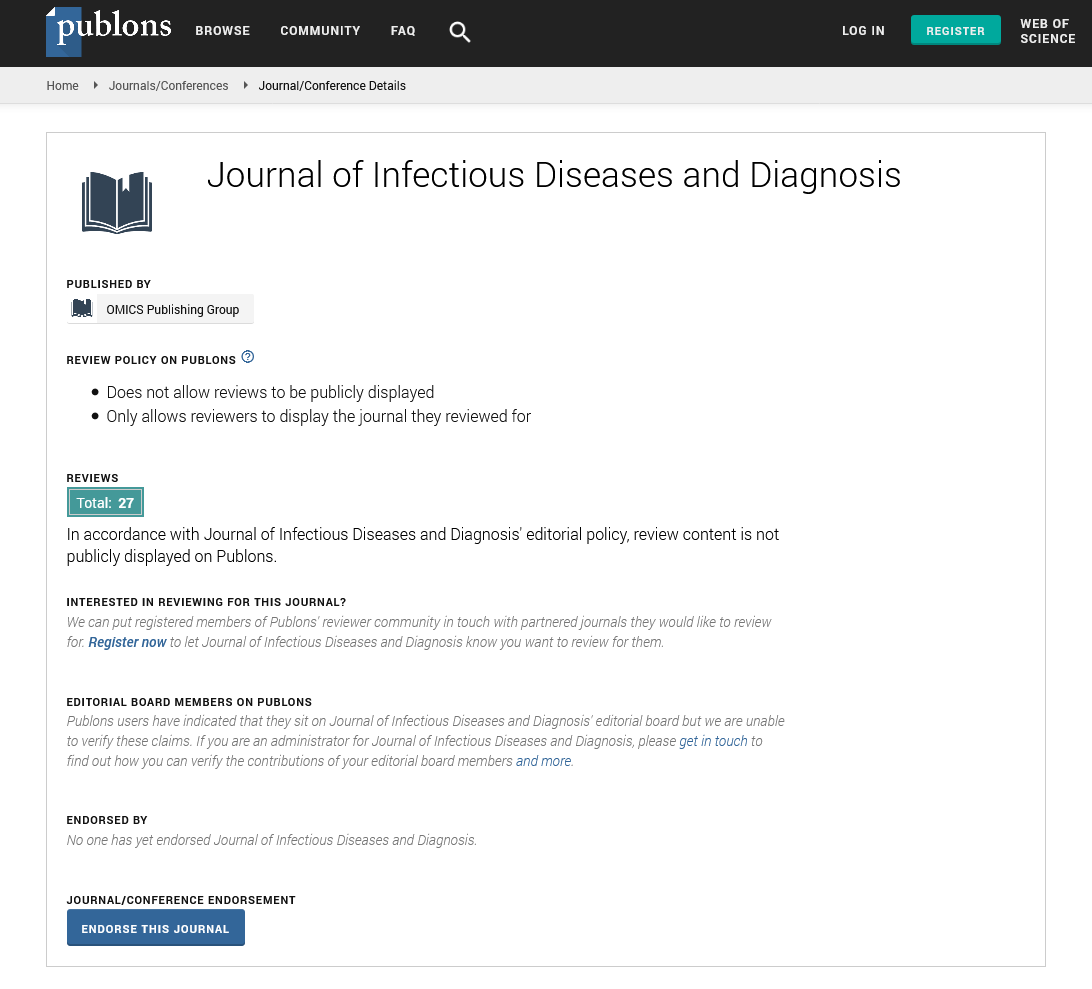Indexed In
- RefSeek
- Hamdard University
- EBSCO A-Z
- Publons
- Euro Pub
- Google Scholar
Useful Links
Share This Page
Journal Flyer

Open Access Journals
- Agri and Aquaculture
- Biochemistry
- Bioinformatics & Systems Biology
- Business & Management
- Chemistry
- Clinical Sciences
- Engineering
- Food & Nutrition
- General Science
- Genetics & Molecular Biology
- Immunology & Microbiology
- Medical Sciences
- Neuroscience & Psychology
- Nursing & Health Care
- Pharmaceutical Sciences
Perspective - (2023) Volume 8, Issue 6
Population Genetics of Severe Malaria: A Comprehensive Study of Host Factors in Endemic Areas
Isabella Unal*Received: 02-Oct-2023, Manuscript No. JIDD-23-24043; Editor assigned: 04-Oct-2023, Pre QC No. JIDD-23-24043 (PQ); Reviewed: 20-Oct-2023, QC No. JIDD-23-24043; Revised: 27-Oct-2023, Manuscript No. JIDD-23-24043 (R); Published: 03-Nov-2023, DOI: 10.35248/2576-389X.23.08.247
About the Study
Severe malaria continues to exact a heavy toll on global public health, particularly in endemic regions where the intricate interplay between the Plasmodium parasite and human hosts shapes the epidemiological landscape. This study explores into the complexities of a comprehensive study focusing on the population genetics of severe malaria. By examine carefully host genetic factors in endemic areas, we aim to discover insights that can inform targeted interventions, personalized treatments, and, ultimately, contribute to the global fight against this devastating disease.
Malaria, caused by the Plasmodium parasite and transmitted through the bite of infected mosquitoes, poses a substantial burden in endemic regions, particularly in Sub-Saharan Africa. While the majority of malaria cases result in mild symptoms, severe malaria can lead to life-threatening complications, including cerebral malaria, severe anemia, and organ failure. Understanding the factors that dictate the severity of the disease is significant for devising effective strategies for prevention and treatment.
Host genetics as a determinant of disease outcome
The susceptibility to severe malaria is not uniform across populations, and evidence suggests that host genetics plays a pivotal role in determining individual responses to the Plasmodium infection. A comprehensive study of population genetics in severe malaria endemic areas seeks to reveals the genetic threads that contribute to variations in disease outcome. By identifying genetic factors associated with susceptibility or resistance, researchers can gain valuable insights into the hostparasite interactions that underlie the severity of malaria.
Endemic regions are characterized by a diverse range of genetic diversity among their populations. This diversity is a result of historical, environmental, and selective pressures, and it has implications for how individuals respond to infectious diseases like malaria. A population genetics approach enables researchers to capture this diversity, identifying genetic variations that may confer protection or increase vulnerability to severe malaria. By examining a broad spectrum of genetic factors within populations, the study provides a nuanced understanding of the genetic landscape of severe malaria.
Genomic insights into severe malaria susceptibility
Advancements in genomics technologies have empowered researchers to conduct more comprehensive and detailed studies on the human genome. A study on the population genetics of severe malaria leverages these tools to explore a myriad of genetic factors, including variations in immune response genes, hemoglobinopathies, and other genetic traits that may influence disease severity. This holistic approach allows for the identification of both common and rare genetic variants associated with severe malaria susceptibility.
Personalized medicine and targeted interventions
The implications of a comprehensive population genetics study extend beyond academic inquiry. Both targeted therapies and personalized medicine are made possible by them. Healthcare professionals can customize interventions to meet the needs of each patient by knowing the genetic drivers of severe malaria susceptibility within particular groups. Precision medicines, such as genetically modified medication regimens or vaccines, may be more effective in populations with different genetic profiles solely due to this strategy.
Challenges and ethical considerations
While the potential benefits of population genetics studies in severe malaria are substantial, they are not without challenges. Ethical considerations, including issues related to informed consent, data privacy, and the equitable distribution of benefits, must be carefully navigated. Furthermore, a thorough grasp of the social, cultural, and environmental contexts in which the research is being conducted is necessary for the interpretation of genetic data. Collaborative efforts involving local communities, researchers, and policymakers are essential to ensure that the insights gained from such studies translate into meaningful improvements in malaria control and treatment.
Global implications for malaria control
The findings from a comprehensive population genetics study on severe malaria in endemic regions have broader implications for global malaria control efforts. As malaria remains a major public health challenge, particularly in resource-limited settings, understanding the genetic factors influencing disease severity can inform the design of more targeted and effective interventions. By integrating genetic insights into broader malaria control strategies, we move one step closer to achieving the ambitious goal of malaria eradication.
Conclusion
There is much to learn about the population genetics of severe malaria, and this topic has the potential to influence malaria research and control in the future. A comprehensive study focused on host factors in endemic areas reveals the intricate genetic threads that contribute to the varying severity of the disease. The knowledge gathered from this study not only broadens our comprehension of host-parasite interactions but also has the potential to guide targeted therapies and customized medicine strategies. As we continue to combat malaria on a global scale, the integration of population genetics into our arsenal of tools is a significant step toward a malaria-free future.
Citation: Unal I (2023) Population Genetics of Severe Malaria: A Comprehensive Study of Host Factors in Endemic Areas. J Infect Dis Diagn. 8:247.
Copyright: © 2023 Unal I. This is an open-access article distributed under the terms of the Creative Commons Attribution License, which permits unrestricted use, distribution, and reproduction in any medium, provided the original author and source are credited.

